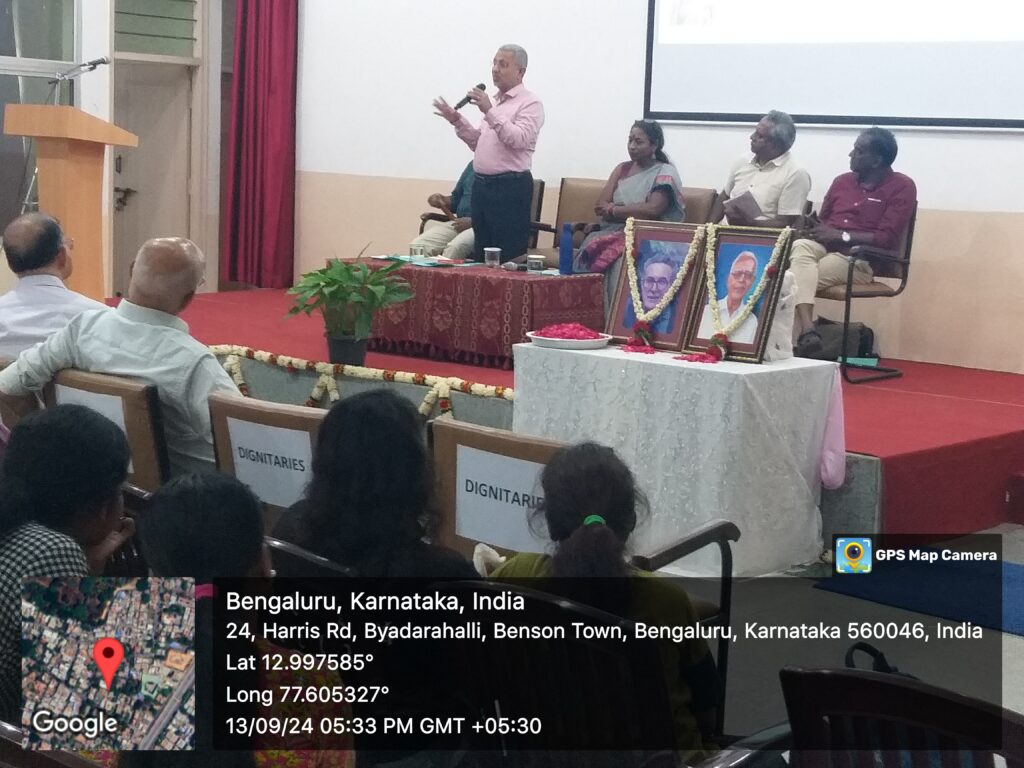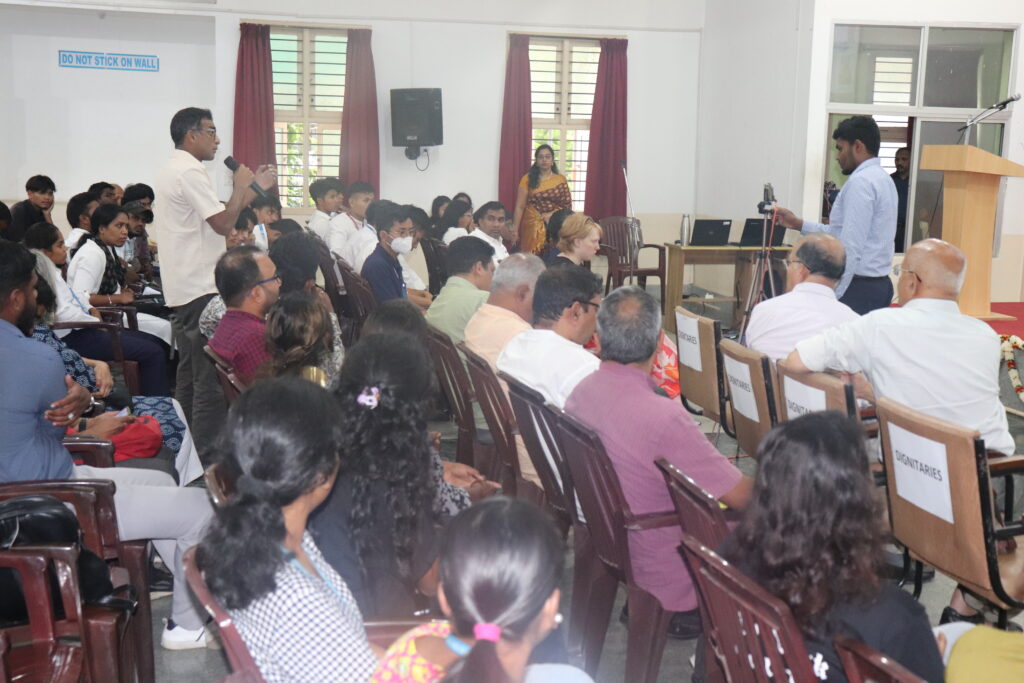


HENRY VOLKEN – STAN SWAMY MEMORIAL LECTURE 2024
Henry Volken – Stan Swamy Memorial Lecture, an annual feature of Indian Social Institute, Bangalore (ISI B) was held on September 13, 2024, Friday at Romero Auditorium of the premise at 04.00 pm. Hon’ble Justice Kurian Joseph, retired judge of the Supreme Court of India was the chief guest who delivered the memorial lecture. Mr. Salil Shetty responded to the lecture and Ms. Brinda Adige, a member of ISI B Governing Board moderated the session.
Fr. Anthony Dass, the Vice-President of the institute welcomed the gathering. In his welcome address, he cited the legacy of ISI B especially remembering its founders and their contribution to the institute. Dr. Selvaraj Arulnathan, the Director introduced the memorial lecture highlighting the great works of both Fr. Henry Volken as the Founder director and Fr. Stan Swamy as the one expanded the works of institute beyond its South Indian borders and made it known to the global community through training and advocacy, and their impact upon the civil society world.
In his lecture, Justice Kurian Joseph highlighted on the role of civil society in nation building. He opined that “strong people stand up for defending themselves whereas stronger people stand up for defending others”. He also asserted that nation building is a continuous process which we resolved to do through the Preamble of our Constitution which clearly stipulates this mission. We have the icons of defending and building the nation in the persons of Fr. Stan Swamy, Gauri Lankesh and also Archbishop Oscar Romero after whose name this building is named. India respects and recognizes all religions; we can include all the religions also as part of the civil society, in building up the nation. Social justice includes socio-economic political liberation, freedom of thought and expression of opportunity. Caste, colour, creed, language, gender, are generally the discriminatory practices about which we should become alert and be careful. The ideal of our constitution is that women, the last, the least and the lost are in a position to live with dignity and freedom. This is the vision of the nation builder of free India.
Mr Salil Shetty, in his response to the lecture said that civil society in a classical sense visualizes three circles being society the bigger circle, then the government and the market, the private sector, the other circles. When you see these three circles in a Venn diagram interconnected and the overlap which the civil society occupies. The idea of civil society is mediating lives of individuals, citizens and people of this country, rights of the society of the country in relation to the government and in relation to the private sector. In a democratic society, the individual, the people and the society are supreme. Everybody else is accountable to the people of this country. In reality we know that the citizen, the individuals and people become the weakest. It is the job of the civil society in an organized form to hold the other organs, i.e., the government, the market and the private sector to be accountable.
Brind Adige in her concluding remarks, affirmed that the lack of freedom of the four pillars of the country are the real concerns of the nation. She also spoke that there are four M’s that govern and control us: money, media, muscle and mind, these four control us. We as civil society respond to the people who need our intervention.
The presence of Harsh Mander, founder of Karwan-e-Mohabbat (peace Yatra) was a value addition to the occasion. His intervention enthused the audience.
Dr. Denzil Fernandes, the head of Peace and Reconciliation Unit proposed a vote of thanks acknowledging the great contribution that the Civil Society friends made in the growth and progress of the institute. With National Anthem, the memorial lecture event came to a happy end.
